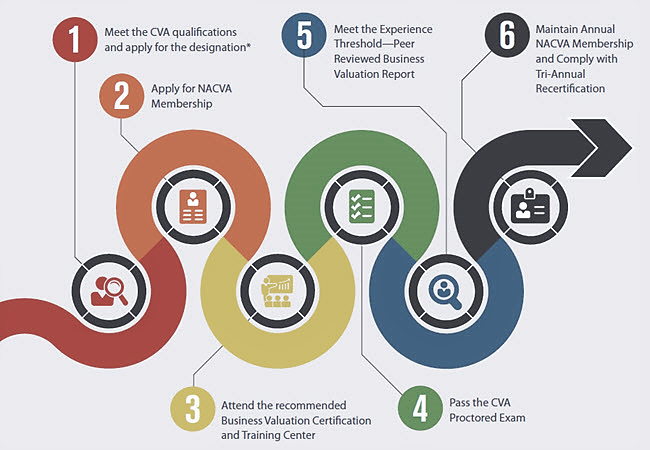Ultimate Guide to Recognizing Company Voluntary Contracts and How They Profit Organizations
Company Voluntary Arrangements (CVAs) have come to be a strategic tool for services looking to browse financial challenges and reorganize their operations. As the service landscape proceeds to develop, comprehending the details of CVAs and how they can favorably influence business is vital for informed decision-making.
Comprehending Business Volunteer Agreements
In the realm of business governance, an essential idea that plays a crucial role in shaping the connection between stakeholders and business is the detailed mechanism of Corporate Voluntary Contracts. These agreements are voluntary commitments made by business to follow specific requirements, practices, or goals beyond what is lawfully called for. By participating in Business Volunteer Arrangements, firms show their dedication to social duty, sustainability, and moral company practices.

Benefits of Corporate Voluntary Agreements
Moving from an expedition of Corporate Volunteer Agreements' relevance, we currently turn our attention to the substantial benefits these contracts offer to firms and their stakeholders. One of the main benefits of Company Voluntary Agreements is the possibility for firms to restructure their financial debts in a more convenient means. This can help ease financial problems and prevent prospective bankruptcy, allowing business to proceed running and possibly grow. Furthermore, these agreements offer an organized framework for settlements with financial institutions, fostering open interaction and collaboration to reach mutually beneficial options.
Moreover, Corporate Voluntary Agreements can improve the business's online reputation and relationships with stakeholders by demonstrating a commitment to dealing with economic obstacles responsibly. By proactively seeking solutions through voluntary agreements, companies can showcase their dedication to fulfilling responsibilities and maintaining trust within the industry. Additionally, these agreements can provide a degree of discretion, allowing business to resolve monetary difficulties without the public scrutiny that might come with various other restructuring alternatives. Overall, Company Volunteer Agreements serve as a critical device for companies to browse economic difficulties while maintaining their procedures and connections.
Refine of Carrying Out CVAs
Recognizing the process of implementing Business Volunteer Contracts is essential for firms looking for to browse monetary difficulties efficiently and sustainably. The first action in applying a CVA involves appointing an accredited insolvency specialist who will certainly function closely with the company to evaluate its financial circumstance and viability. Throughout the execution procedure, routine communication with creditors and diligent economic administration are vital to the successful execution of the CVA and the business's ultimate monetary recovery.
Trick Factors To Consider for Companies
When assessing Business Volunteer Agreements, companies need to meticulously consider key elements to guarantee effective monetary restructuring. In addition, businesses should extensively assess their existing debt framework and review the influence of the CVA on numerous stakeholders, consisting of financial institutions, staff members, and distributors.
An additional essential consideration is the degree of transparency and communication throughout the CVA procedure. Open and honest interaction with all stakeholders is crucial for developing click here to read trust and guaranteeing a smooth implementation of the agreement. Organizations ought to also take into consideration looking for professional suggestions from monetary consultants or lawful experts to browse the complexities of the CVA process properly.
Moreover, businesses need to analyze the long-lasting effects of the CVA on their online reputation and future funding opportunities. While a CVA can supply immediate relief, it is vital to review how it may influence relationships with lenders and capitalists over time. By thoroughly taking into consideration these key aspects, organizations can make informed choices pertaining to Corporate Voluntary Contracts and establish themselves up for an effective financial turn-around.
Success Stories of CVAs at work
Several companies have effectively executed Company Volunteer Agreements, showcasing the effectiveness of this financial restructuring tool in rejuvenating their procedures. One notable success story is that of Business X, a having a hard time retail chain encountering bankruptcy view due to mounting debts and declining sales. By becoming part of a CVA, Company X was able to renegotiate lease agreements with property owners, decrease overhead costs, and restructure its debt obligations. Because of this, the company was able to stabilize its economic placement, boost cash money circulation, and prevent insolvency.
In one more instance, Firm Y, a production firm strained with tradition pension responsibilities, used a CVA to rearrange its pension commitments and enhance its operations. Via the CVA process, Company Y attained considerable price financial savings, enhanced its competition, and protected long-lasting sustainability.
These success stories highlight just how Business Volunteer Contracts can provide having a hard time services with a feasible path towards economic recovery and operational turnaround - what is a cva agreement?. By proactively go to this web-site dealing with economic challenges and reorganizing obligations, business can arise stronger, a lot more agile, and much better placed for future growth

Conclusion
In final thought, Business Voluntary Agreements provide companies an organized strategy to settling economic troubles and reorganizing financial obligations. By executing CVAs, companies can avoid insolvency, safeguard their assets, and keep partnerships with creditors.
In the world of company governance, a fundamental concept that plays a crucial duty in shaping the relationship between business and stakeholders is the intricate device of Business Voluntary Arrangements. By entering into Company Voluntary Agreements, firms demonstrate their dedication to social obligation, sustainability, and ethical business techniques.
Relocating from an exploration of Corporate Volunteer Arrangements' relevance, we now transform our attention to the substantial advantages these arrangements use to firms and their stakeholders.Moreover, Business Volunteer Contracts can enhance the business's reputation and partnerships with stakeholders by demonstrating a dedication to attending to financial difficulties sensibly.Comprehending the procedure of executing Corporate Voluntary Agreements is crucial for business looking for to navigate financial obstacles effectively and sustainably.
Comments on “Corporate Voluntary Agreement (CVA): Meaning and Business Applications.”